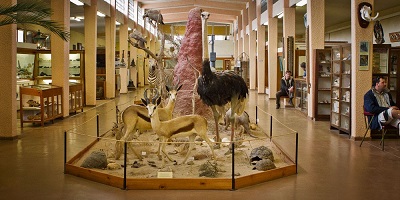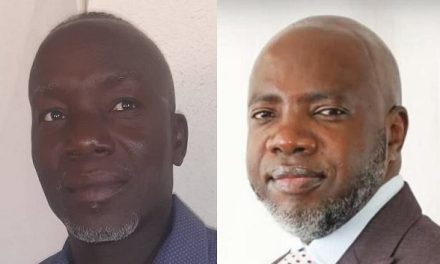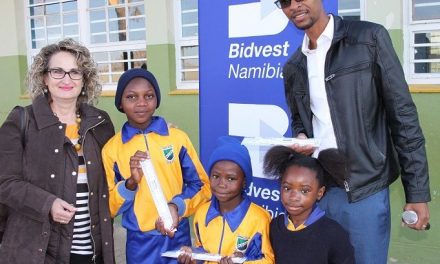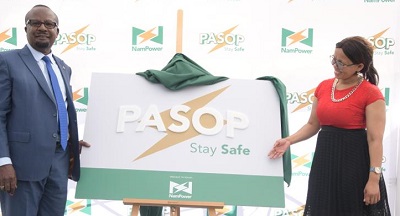
COVID-hit arts and culture industry at the coast aided by Goethe-Institut, German Foreign Office

The Scientific Society Swakopmund (SSS) successfully completed a six-month project, “Sustaining the SSS” financed through the International Relief Fund for around N$500,000.
This project entailed three sub-projects: “Swakopmund Museum: The Alternative Classroom”, “Historical Newspapers Digitisation” and “Putting the Sam Cohen Library Catalogue Online”.
The International Relief Fund is an initiative of the Goethe-Institut, the German Foreign Office, and other stakeholders to alleviate the acute crisis in the arts and culture during the COVID-19 pandemic.
Support for cultural and educational organisations in many countries is an important contribution to safeguarding cultural infrastructure and artistic freedom, social diversity, and critical discourse.
As with many cultural non-profit organisations worldwide, the SSS sustained a hard blow due to the COVID-19 pandemic, which up to today results in decreased income through a lower number of visitors and lower spending in the Swakopmund Museum and the Sam Cohen Library and Archives.
These two entities belong to the SSS and are important sources of income. The International Relief Fund (IRS) greatly supported the SSS by funding towards salaries and thus retaining important staff, increasing the collaboration of the museum with local schools (Alternative Classroom project), digitizing historical newspapers, thereby safeguarding them as well as making parts of these copies keyword-searchable PDF-files and by sharing a part of the library and archive catalog online, therefore increasing the national and international reach and thus the income base of the Sam Cohen Library.
1st Subproject Alternative Classroom
Working together with the Director of the Ministry of Education, Arts and Culture, Erongo Region, local schools were involved in creating a curriculum for a day of school in the Swakopmund Museum. The “Alternative Classroom Handbook for Grades 1 and 2” was one of the outputs that can be used by visiting school groups. The project’s aims to motivate and enable teachers and learners were achieved. Due to the success of the project, the Swakopmund Museum also decided to create an extra membership category for educational institutions in order to support the educational sector in Namibia.
2nd Subproject: Newspaper Digitisation
Microfiche copies of historical newspapers from former German South West Africa and South West Africa were acquired from the National Archives in South Africa. The IRF-Funding was used to purchase digital copies of these. Scans were processed and through optical character recognition (OCR) procedure, made keyword-searchable.
In total 15,330 historical newspaper editions were run through the OCR program, while some 20,000 remain outstanding. The newspapers available are for example the “Swakopmunder Zeitung“, „Der Südwestbote” (1903-1915), “Lüderitzbuchter Zeitung”, “Keetmanshooper Zeitung”, “South West Times”, “Swakopmunder Echo” etc.
The digitized historical newspapers are now safeguarded in the Sam Cohen Library and protected from loss, theft, natural disasters, and natural deterioration that old newspapers are subject to, especially with physical handling.
3rd Subproject: Online Library Catalogue (PPO)
Money was made available through the IRF to share 10,000 objects from the PastPerfect Program used to catalog items of the Scientific Society Swakopmund. These include a library, archive, photos, and Museum items. Items to share online were selected mainly according to the uniqueness of the source of information and the popular demand for information from the public.
The Past Perfect Online database (https://swakop.pastperfectonline.com/) provides searchable access to parts of the collections of the SSS. The collections are organised into catalogs that allow you to search and view a part of the extensive library, special collections, and photographs.
The projects funded through the International Relief Fund, therefore, have been only the start of enabling the SSS to contribute even more to the local development of Swakopmund, in particular in the area of education. This was only possible through the support of the International Relief Fund of the Goethe-Institut Namibia.












































